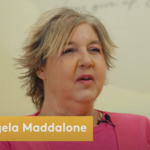Medically Reviewed by: Dr. Bautista
Our Editorial Policy
Updated on: November 16, 2019
About Melanoma
Melanoma is a type of skin cancer affecting melanocytes, the cells that produce melanin. Melanin is the pigment compound that gives your skin, hair, and eyes their color. This is also why melanoma can potentially form in the eyes, though it can in some rare cases affect the internal organs.
Superficial spreading melanoma is the most common type of melanoma, but other types of melanoma include:
- Lentigo maligna melanoma
- Acral lentiginous melanoma
- Nodular melanoma
Melanoma accounts for just 1 percent of all skin cancer cases, making it one of the least common types of skin cancer. It’s also one of the most serious types of skin cancer, so once melanoma cells are detected, it’s important to discover the best-targeted therapy method to treat melanoma skin cancer.
Causes and Risk Factors
Melanoma is caused by a mutation in skin cells that results in their abnormal and unregulated growth. Over time, the cells can form into masses of cancerous tissue known as melanoma tumors. Left untreated, these cells can eventually grow and spread to other parts of the body.
DNA damage is responsible for this cellular mutation, but the exact cause of this DNA damage is not well known. Some doctors do believe that exposure to UV radiation from the sun or tanning beds is the leading cause of melanoma, but not all melanomas are caused by UV exposure.
Along with UV exposure, a family history of melanoma may increase your risk of malignant melanoma, though this may have more to do with a shared family lifestyle than any hereditary factors. About 10 percent of those diagnosed with melanoma have a history of melanoma in the family. Though UV exposure is not the only cause of melanoma, avoiding excessive exposure is one of the primary ways to prevent melanoma cancer.
Other risk factors include:
- Having fair skin
- Having a disease or disorder that weakens the immune system
- Being older (though melanoma is one of the few types of cancer that can commonly affect people younger than 30)
Early Detection, Diagnosis, and Staging
The main sign of this skin cancer is the formation of skin lesions, which appear as dark growths on the skin, sometimes easily mistaken as moles. These skin lesions can appear anywhere on the body, particularly areas that often get exposed to the sun, like the face, arms, shoulders, and legs. However, they can also appear on areas that don’t see much sun, including the palms, the soles of the feet, and under fingernail beds. These are known as hidden melanomas. You may also notice changes in the shape or size of an existing mole.
Discerning a skin cancer lesion from a mole can be difficult on your own, and the only way to know for sure if you have melanoma is to see a doctor. Diagnosing melanoma can be as simple as a visual examination of your skin, but the doctor may also request a biopsy on visible lesions, which requires taking a tissue sample that is then examined for the presence of cancerous cells.
From there, the doctor will proceed to the staging phase, which determines the severity and potential spread of the cancer to help the doctor decide on the best melanoma treatment plan to kill cancer cells in the body. Melanoma is staged using Roman numerals I to IV where I refers to malignant melanoma that is small and localized to a single area, while IV refers to a melanoma that has spread to other organs.
The Different Stages of Melanoma Cancer
The vast majority of cancer strains are graded on a scale of 0 to 4. The stages for melanoma skin cancer go as follows:
- Stage 0 – Melanoma in situ, means you have melanocytes. An abnormal production of melanin in your body, which is the reason behind the pigments of your skin. In this stage, your cells can be cancerous but it would simply look like an abnormal cell or small mole on top of your skin.
- Stage I – Tumor grows up to 2mm thick and may have broken to your skin. It has not spread yet to any nearby lymph node, nor spread to other regions of the body. Main melanoma treatment for stages 0 and 1 is surgery.
- Stage II – Tumor grows into 1mm thick or larger and has reached the deeper layers of your skin.
- Stage III – Cancer has spread in the lymph system but not in the distant parts. Strong medications are common treatments at this stage.
- Stage IV Melanoma – At this stage, the cancer has now spread to the other parts of the human body. There are different options for treatment in this stage such as surgery, chemotherapy, immunotherapy, and radiation.
Alternative/Natural Treatments for Melanoma
At its early stage, melanoma is usually treated with surgical excision to remove the cancerous tissue from lesions on the skin. In later stages, the doctor may recommend chemotherapy drugs, adjuvant therapy, radiation therapy, and targeted therapy. While these treatments may be effective, they often result in physical fatigue and a weakened immune system.
Immunity Therapy Center focuses on alternative and natural treatments designed to treat skin cancer without affecting your overall health and wellbeing. We work with melanoma patients to develop a personalized melanoma alternative treatment plan that avoids radiation therapy and harsh chemo drugs to promote your healing and maintain a healthy immune system. Contact Immunity Therapy Center today to learn more about potential clinical trials or to receive a custom skin cancer treatment plan.
Sources:
- https://www.aimatmelanoma.org/about-melanoma/melanoma-stats-facts-and-figures/
- https://www.cancer.org/cancer/melanoma-skin-cancer/causes-risks-prevention/risk-factors.html
- https://www.cancer.org/cancer/melanoma-skin-cancer/treating/by-stage.html
At Immunity Therapy Center, our goal is to provide objective, updated, and research-based information on all health-related topics. This article is based on scientific research and/or other scientific articles. All information has been fact-checked and reviewed by Dr. Carlos Bautista, a Board Certified Medical Doctor at Immunity Therapy Center. All information published on the site must undergo an extensive review process to ensure accuracy. This article contains trusted sources with all references hyperlinked for the reader's visibility.
Customized Care For the Body And The Mind
Discuss Your Custom Alternative Treatment Plan With Our Team Today
Hear from Our Patients
See why the Immunity Therapy Center is a trusted name for medical tourism and cancer treatment centers in Mexico.
Start Your Healing Journey with a FREE Consultation
At ITC, we understand the importance of feeling heard and supported. Fill out our form, to speak with one of our patient advocate in the next 24 hours to have a free consultation and guidance, creating a personalized treatment plan just for you. You’re not alone on your path to healing. We’re here to support you through every step!







